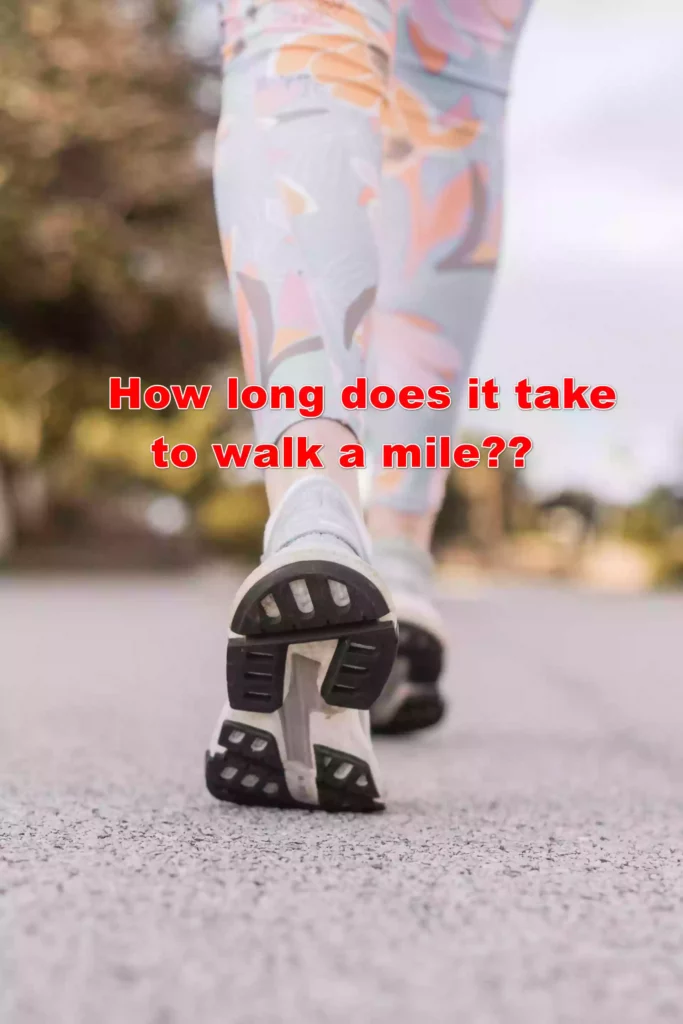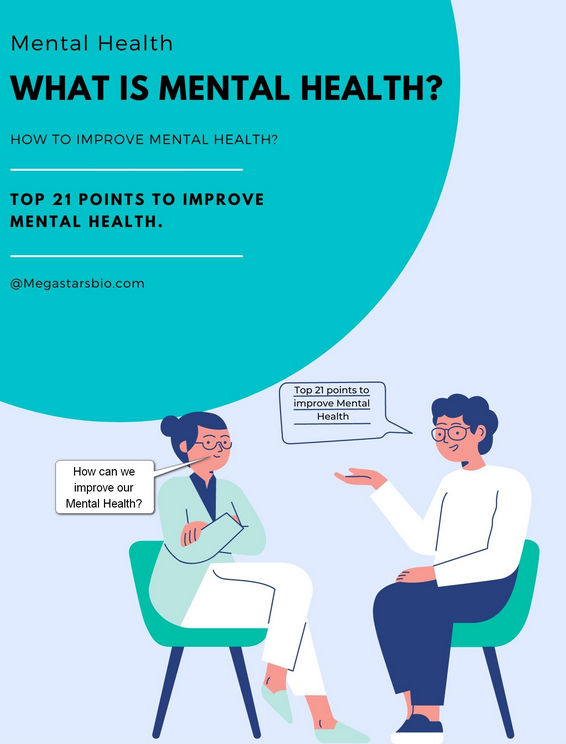How Long Does it Take to Walk a Mile? How Long Does it Take to Walk half a Mile? Well in both cases it depends on a person’s health, age and quickness, and mostly it also depends on skills. Normally, the young healthy male can run faster than anyone else. The average adult walks somewhere between 3 and 4 miles per hour, so a mile takes between 16 and 21 minutes Approx. So in this scenario Walking half of a mile takes between 8 -10 minutes max to max. Depending on age and gender, as well as fitness level, some people may walk faster or slower than this. We take this result as an average based on various studies and research results.
Each of us walks differently because of a variety of reasons. The most important are the patterns of walking and how much energy is expended, how fast we want to reach the destination, how our health conditions are etc etc.
Is it possible to calculate walking speed?
Table of Contents
There are times when you need to calculate how many minutes it takes to walk a mile when planning a trip, a day out, or preparing for an upcoming sponsored walk or marathon. Obviously, individual health will have an effect on how long it takes to walk a mile, but you can also take into account other factors such as age, gender, and pace when planning your program.
It’s possible to calculate a walking speed We will show you how you can measure it in your case. So stay tuned with us.

Why We should walk at least half of mine or a Mile per day? Various Name of walking style
There is a proverb in English, Health is Wealth. Normally good health is only possible if we are aware of physical activity, and walking is a simple but effective activity, that we generally can do anytime during the day. Be it a morning walk, be it an evening walk, walking is the best exercise for our health.
You burn fat, boost endurance, and reduce excess body fat while walking or brisk walking. Walking every day a mile if not possible least half of a mile can, remove stress, and anxiety, help blood circulation in every part of the body, help grow muscle, and remove pain. There are countless benefits to walking a mile or half of a mile regularly.
In addition to bringing health and happiness, walking is an excellent way to improve or maintain fitness. Walking tends to be slower than running. Brisk walking means walking faster than usual. The pace you walk will depend on your fitness level and the terrain. This will improve your fitness. You might be interested to know how long a mile takes?
So without wasting time, Let’s discuss this in depth. …
What is a mile? Let’s find out first!
A mile is a distance measurement unit, in FPS systems. It’s used for how long distance between two objects, it is a bigger unit of Foot. 1 mile =5180 feet = 1.62 km. So now we understand that Mile is a unit of a distance measurement system and we use it for understanding how much distance we are talking about.
Now the question is how much time it would take?
There is no difference in the number of times one walks a mile. What’s the time needed to finish a particular distance? That depends both on your pace and your speed. Walking this distance automatically makes you healthier than you were before. Most people will walk between 2.6 and 3.3 miles per hour. During a moderate pace, one mile would take between 16 and 21 minutes. Considering about a mile, it is a small distance that you walk every day.
How long does it take to walk half a mile?
The walk along a half-mile will definitely take you at least 7-8 minutes at a time. For Fast walkers walk this distance is roughly between 8 to 10 minutes, and their stride will determine both their speed and age as well as their gender.

A man walks faster than a woman. Often, elderly people don’t receive good advice and don’t do the recommended amount of physical exercise each day. When someone walks this particular distance too fast, they can walk faster than they expect.
How Can you calculate your walking speed?
How to calculate your walking speed? Well before answering this, you need why you need to calculate your speed.
Whenever you are preparing to walk a mile as part of a sponsored walk or marathon, you should calculate how many minutes it takes to walk a mile before setting out on your journey, day out, or event. A person’s health will of course have an impact on the amount of time it takes to walk a mile, but other factors such as age, gender, and pace can be taken into consideration.
Well to calculate your walking speed, Fast pace, moderate or Normal Space, or Slow pace you just need to use your wristwatch or stopwatch. Just mark down the time or press the start button, and start walking. When you finish 1-mile work you just need to note down the time or press the stop button. From Starting time to ending time or from stopwatch time you can easily measure how much time it takes to complete a mile.
Well to use this method you must ensure that you choose the right distance pillar which is generally placed behind the road. Or you can use a GPS positioning system to mark down the distance via your android mobile phone.
What is the time it takes to walk one mile For Men and women?
For Women:
A woman’s walking time depends on her age, health, speed, stride, how much she weighs, fitness and stamina. Typically, it takes between 18 – 25 minutes for a healthy weight woman without any physical problems or conditions to walk a mile.
Age plays a big part here. 24- 30 Aged women can complete it for 17 – 22 minutes, while women aged 40 to 50 will normally take more than 28 minutes.

For Men:
Whereas It takes only 14 to 18 minutes for healthy and strong men to complete a mile, for elderly men, it roughly takes nearly 18 to 21 minutes. And when we talk about the Younger boy, whose age is below 18 can complete this walk within 7-10 minutes roughly. Here is a diagram that explains the average time it takes to walk this distance.
Below are some statistics for walking at different speeds:
- Fast: For Fast walking people can complete 100 to 119 steps per minute. So it takes 11 minutes to complete the One-mile target.
- Normal: Moderate or Normal Walker can take 80 to 99 steps per minute. So it takes 16-21 minutes to complete a 1 mile target.
- Relaxed: Slow or relaxed walkers can 60 to 79 steps per minute, which means they will need more time. To complete 1 mile of walking they will need 21-25 minutes Approx.
A fast walker can complete a mile within 7 to 10 minutes. You will walk faster than you are expecting from yourself when you are training or practicing daily to walk this distance. It makes you even faster if you add an extra-long distance with a limit to your daily distance. So, the moral of the story is the more you train, the faster you become.
How much time does an average person take time to walk a mile?
It would take the average person roughly 20-22 minutes to walk this distance. As we grow older, our walking speed gradually decreases slowly. For every mile, you will be 1.5 to 2.3 minutes slower than you were when you walked the same distance at an earlier age. Age is the main factor, because it drainage our energy, makes us weaker, and also started fitness level downgraded.
When you are 55-60 you will walk more slowly than when you are the age early 25. At this old age of 60, our maximum walking speed is somewhere between 2.5 to 3.2 miles per hour for an average person.
How long does it take to walk a mile on average?
An average person walks at an average speed of about 3 or 4 miles per hour. A mile may take between 15 and 18 minutes on average to walk. The ideal walk is between 15 and 18 minutes, to complete a mile.
It basically means walking at a normal or moderate speed. This particular distance takes a normal walker at least 15 minutes to complete the target.
But please keep in mind walking depends on numerous factors, including speed, age, gender, weight, height, fitness, skills, patterns, and much more. Speed is determined by your fitness level, the type of terrain, as well as how hard effort you are putting into your walk.
The walker’s pace and time will be slowed down if he or she is old and not in good health. For a healthy man or woman, walking this distance will take about 15 minutes if they are not too fast or too slow, this is the ideal scenario to complete 1 mile of distance by walking.
Benefits from walking a mile per day
Now We know how much time it would take to complete walking a mile or half of a mile. Now in this article, we should point out some benefits, so that you can cheer up and motivate others to do the same.
Walking briskly steadily more than 1 mile per day will give you numerous health benefits.
The advantages and benefits associated with walking are numerous, particularly in terms of their physical, psychological, and social aspects. The following are some of the advantages we can gain from walking a mile per day or more. Check the countless benefits below. If we miss something you can write and suggest to us via comment sections we shall definitely include them.
No-01. Walking a mile everyday Revitalizes your body
Walking is a good exercise. In addition to reducing stress, anxiety, and depression, it will also help you rejuvenate yourself. The process of walking increases your heart rate, which then promotes blood flow in the brain, which in turn provides it with more oxygen and nutrients. Those who suffer from Parkinson’s disease or any other disorder that causes the brain to produce less dopamine may also benefit from walking.
There are many ways of walking. One of them is called power-walking which is a combination of running and walking at the same time.
Power-walking is a great exercise that helps you get stronger and lose weight, but it comes with certain risks such as high chances of injury.
Core Power is an easy way of walking that tone your core muscles and gives you the best benefits. This walk does not require any equipment and uses only your own natural weight to work out your core and lower body. You can do this without looking like a fool.
How To Do It:
Find a place where you can walk without being worried about people who might pass by while exercising. It should be safe, so find a street or a gym where no one will care if you are doing something there.
No-2. Reducing the risk of heart diseases & Stroke Chances.
Walking briskly a mile or more than that regular basis gives you tremendous results. It reduces the chances of Stroke, Heart attack, hypertension, thrombosis, and much more.
By engaging in these types of physical activities, you improve your blood pressure, which means your blood pressure rises and it creates lots more new blood channels throughout your body. Your body gets pure oxygen supplies and eliminates toxic materials.
No-3. Improving cardiopulmonary function.
In order to increase your cardiovascular and pulmonary fitness, you should aim to walk for a minimum of 30 minutes every day. So walking daily at least 1 mile will do the job.
To get better benefits you must walk more than 1 mile, daily walking 2-3 miles, and jogging will increase your blood circulation throughout the body, and increase cardiopulmonary function capacity very well. So that you can achieve good health and stay fit and healthy.
No-4. Burns Extra calories on your body & Maintain Calories intake and Calorie Out.
Calorie in and calories out is a vital part of our life. If one consumes lots of more calorific values and sits idle then it would be bad for our body. Walking 2-3 miles every day burns extra calories so that it can maintain the caloric balance and save us from obesity.
How does it work? Walking a mile every day can burn a lot of calories. If you engage in this activity for a period of time of about 15-30 minutes a day, then you will burn about 300-550 calories per day.
No-5. Increase stamina and fitness.
A little extra distance added to your walk will increase your fitness as well as your stamina. Fitness and stamina is the best part of our life. If persons have good fitness, then he or they will be free from any kind of obligations.
Live your life fully, and enjoy every moment with 100% charge.
Also Read: Drinking 3 liters of Water a day get shocking result Instantly.
No-6. Walking half a mile daily Prevent the risk of lower diabetes
If you walk correctly, you will lower your body mass index (BMI), which will reduce your chances of developing diabetes. This miracle happens because your muscles will be more efficient in utilizing glucose, which means better insulin utilization and lowered blood sugar levels.
When lowering the blood sugar level and maintaining stabilization you are free from diabetes Mellitus. In a survey of Chilean National Health Survey 2016–2017 walking half a mile in a daily routine can reduce the risk of getting diabetes by 23 percent.
It is the scientists’ opinion that physical activity is essential for preventing Diabetes because it decreases insulin resistance and aids in managing weight.
In this research, around 2,000 people took part and were surveyed again after three years. It was found that participants who on returning to their home or workplace walked half a mile a day were less prone to develop diabetes than those who did not do so.
Dr. Ann Albright, lead author of the study said: “Walking longer distances seems to be most beneficial. The meaning is simple walking more miles will help you to fight disease.
No-7. Walking 2-3 miles per day, Decreases Bad Cholesterol by 40%.
Due to calorific intake and out disbalance, and if we become lazy then, bad cholesterol can create and deposited into our blood veins, arteries near the corner of our eyes, etc. Bad cholesterol can create a risk of heart block, heart disease, stroke, paralysis, and much more.
If you have a high cholesterol level, Dr. would recommend you to start physical exercise immediately and stop eating fish, meat, etc,
You can reduce the level of bad cholesterol in your body by simply walking 2-3 miles per day. It also helps and raises the level of good cholesterol in your body at the same time.
No-8. Walking a mile every day helps with Fat Loss, Weight Loss and Makes you Slim.
Do you have huge fat deposited on your belly, Do you want to lose some extra pounds? Losing weight is a very simple game, by walking a mile every day you can achieve this target. Those who suffer from Obesity and fat deposited can also burn them easily.
Walking a distance like this daily improves your response to insulin, which helps you to decrease or reduce your tummy and to keep your overall body weight. So if you are facing overweight, having huge fat deposited in your body, and want to be free from them, then you need to engage in walking habits immediately.
NO-9. Walking a Mile per day Strengthen your muscles and endurance.
Go stronger, sharper, and healthier, by walking a mile per day.
When you walk each day as a habit, you build strong muscles, you build strong bones, and you also improve your body’s equilibrium, balance, and posture.
No-10. Improves your body’s tone.
Taking a brisk walk can make your legs more toned, and your leg muscles stronger and more powerful. By walking straight and upright, you will trim your waist and tone your abs. In addition to helping you maintain a healthy weight, it can also help you relieve stress.
The weight loss you achieve will be beneficial if you walk to raise your heart rate. In addition, it reduces your risk of diabetes and heart disease, and also it increases lung capacity by walking 2-3 miles a day. Starting walking 1 mile per day will do the job, slowly you can increase the limit so that your body can handle the changes.
You’ll lose weight and improve your mood by walking a mile every day! The best part is that you can start in just a few minutes in the morning or evening, perfect for starting off your weekend!
No-11. Walking a mile daily increase your life longer.
Walking helps you to keep your age as well your beauty in young nature. Moreover, it helps you to be fit by preventing various ages – related diseases such as Osteoarthritis, low blood pressure, and hypertension. With an intention to motivate people in walking, the scientists tried to find out how much walking can increase your life span. And as a result, they found out that walking an extra mile daily can increase your life longer.
As per an estimate by the American College of Sports Medicine (ACSM), along with several other experts and specialists, the necessity of exercise is increasingly recognized by people in the present world. Therefore, they are trying to do at least 30-minute exercises (such as an aerobic activity) each day in order to keep themselves fit.
You can do yoga, you can start jogging but always keep in your mind, that health is wealth. If you want to live longer you must have to keep your body fit. So without wasting your time, start walking a mile daily. Because taking a step in time saves nine.
No-12. Walking half a mile daily Prevent miscarriages
The benefits of walking during pregnancy include reducing fatigue and other pregnancy-related diseases. It also helps you lose weight and reduces your chances of getting non-communicable diseases like diabetes. The peak of pregnancy is a time when your body has to care for another body as well as your own. The result of this is that you have a higher risk of developing some common problems such as diabetes and high blood pressure, vomiting, etc.
When women don’t exercise during the pregnancy period they tend to gain more weight and may suffer from some problems like heart disease, back pain, and joint pain.
In an article published in the “National Library of Medicine,” it is mentioned that pregnant women who walked for at least 30 minutes daily, walking half of a mile daily, were less prone to suffer from heart disease than those who didn’t engage in physical activities.
The average duration of walking has been recommended by the American College of Sports Medicine as being about 20 minutes daily for adults for good health benefits.
No-13. Walking half a mile daily makes memory sharper and prevents memory loss
While walking half a mile daily has been linked to better memory recall, it may also be preventing age-related cognitive decline. Adrienne C. Jones, Ph.D., professor of neuroscience and psychology at the University of California at Berkeley followed seniors for 5 years. Her study found more walking tended to be associated with longer life spans and fewer incidents of dementia and mild cognitive impairment. Walking stimulates the heart, muscles, lungs, and brain simultaneously — making it such an effective way to combat memory loss that even 1 hour each week can make a difference in your life.
Those who participated in the study walked on average 1.2 miles on weekdays and 2.4 miles on weekends. Those who walked about 6,000 to 7,500 steps a day had a bigger hippocampus (a brain area associated with memory) as well as sharper memory scores than those who walked less.
These findings are just the latest in research exploring how and why exercise can improve brain health — even in those predisposed to Alzheimer’s disease by genetics and family history. Movement improves blood flow to your brain, which delivers oxygen and nutrients that your brain cells need to stay healthy and age at their optimal rate.
How can you stay safe while walking on the road?
01. If you are suffering from a disease such as a heart attack, you should consult your doctor before engaging in physical exercise.
02. It is important to warm up your body properly if you haven’t exercised in a long time. Cooling down is also necessary if you haven’t exercised in a long time.
03. Consider a landscape without hills or slopes that suit your age and fitness level, especially if you are over 49 years old.
04. You should drink plenty of water before you start your walk as well as after you finish, it will help you to keep hydrated. A water bottle can be helpful if you’re walking a long distance. It will help you overcome thirst and stress.
05. Do not wear shoes that are too tight because they may result in an ankle injury. Wear comfortable clothes and appropriate footwear to prevent blisters and shin splints. You must keep protecting your ankle, and always wear shocks while using sneakers.
06. Avoid walking barefoot on hard surfaces like concrete or cement because it will cause you a fracture on your foot and you may get blisters. Wear socks to protect it from such injuries.
07. Inspect yourself before you start your walk so that you will avoid unexpected injuries and illnesses where the risk is high like heart disease, diabetes, arthritis, and high blood pressure.
To read the complete list Visit Here: 25 Safety Security Tips While Walking on the road
That’s all about this article…
It would be our pleasure to have you join us and read this. Feel free to share your thought in the comment box below if you have anything in your mind.
Thanks For reading this complete article! Thanks Once Again!












